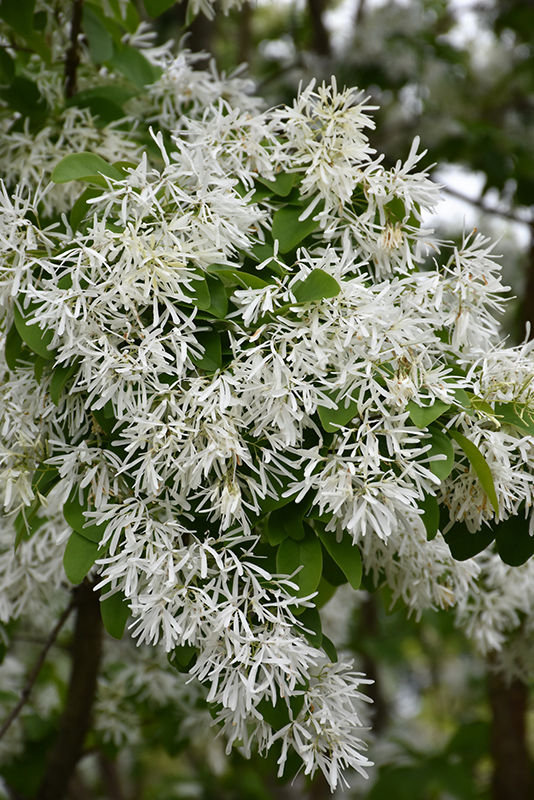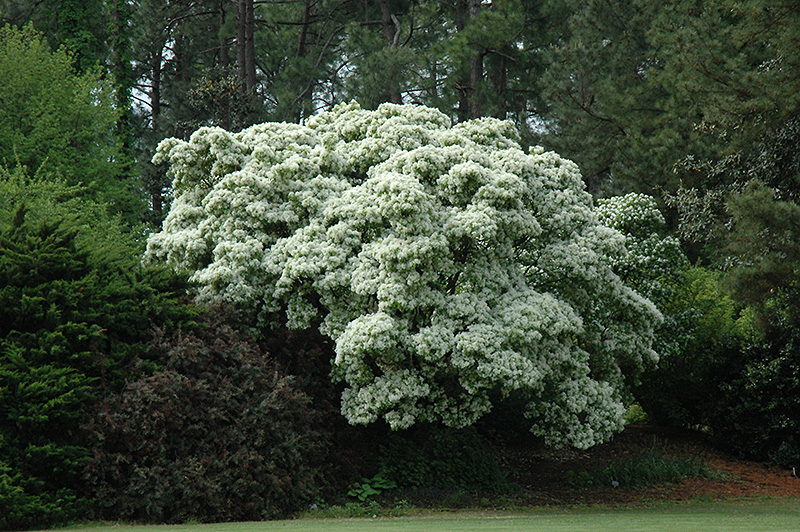20 feet
20 feet


5b
Fringe Tree
Chinese Fringetree is clothed in stunning panicles of fragrant white flowers rising above the foliage in late spring. It has forest green deciduous foliage. The glossy narrow leaves turn yellow in fall. It produces navy blue berries from early to late fall. The peeling gray bark adds an interesting dimension to the landscape.
Chinese Fringetree is a multi-stemmed deciduous tree with a more or less rounded form. Its relatively coarse texture can be used to stand it apart from other landscape plants with finer foliage.
This is a relatively low maintenance tree, and should only be pruned after flowering to avoid removing any of the current season's flowers. It has no significant negative characteristics.
Chinese Fringetree is recommended for the following landscape applications;
- Accent
- Mass Planting
- Hedges/Screening
- General Garden Use
Chinese Fringetree will grow to be about 20 feet tall at maturity, with a spread of 20 feet. It has a low canopy with a typical clearance of 2 feet from the ground, and is suitable for planting under power lines. It grows at a slow rate, and under ideal conditions can be expected to live for 70 years or more.
This tree does best in full sun to partial shade. It is an amazingly adaptable plant, tolerating both dry conditions and even some standing water. It is not particular as to soil pH, but grows best in rich soils. It is highly tolerant of urban pollution and will even thrive in inner city environments. This species is not originally from North America.

